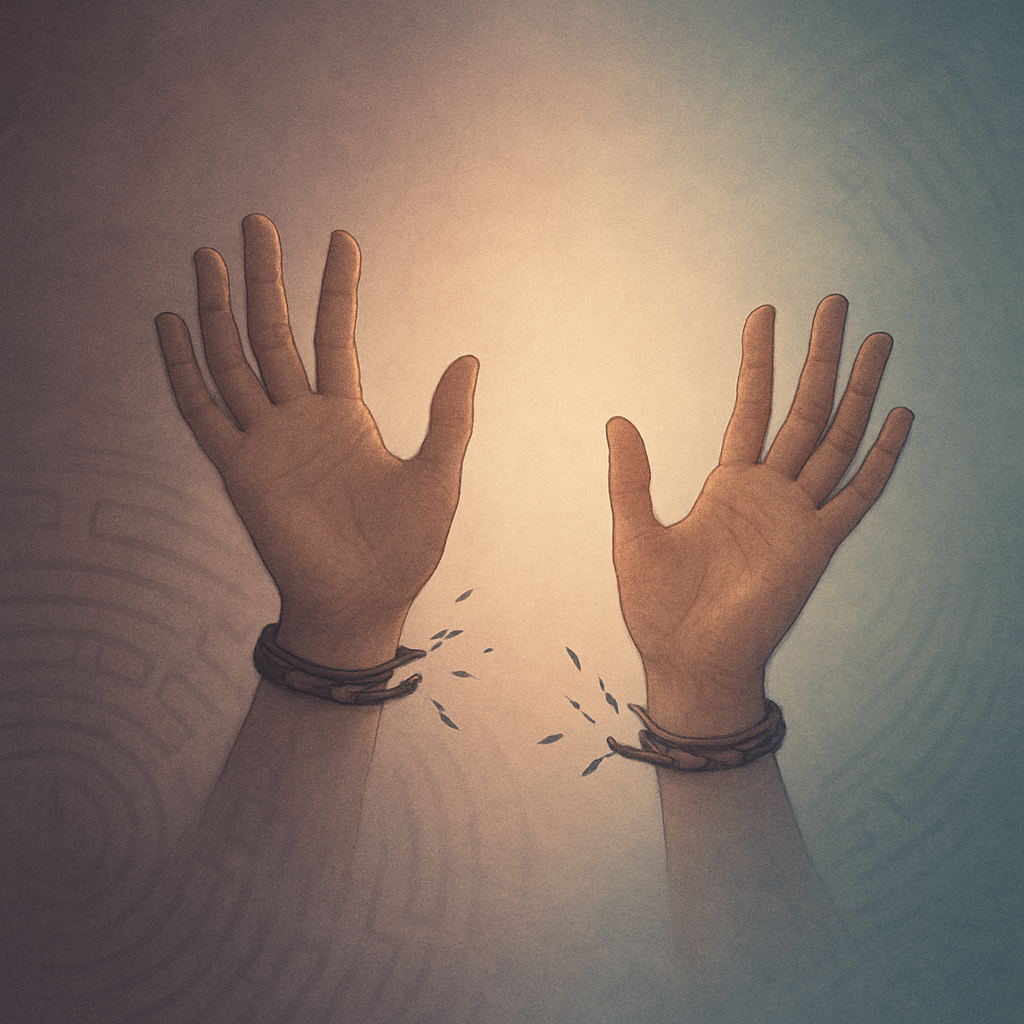Forgiveness is often misunderstood as a one-time event—something we grant when someone apologizes or when we feel ready to "move on." But what if we approached forgiveness not as a destination but as a daily practice? As a holistic coach, I've witnessed how this shift in perspective can create profound healing and transformation.
Redefining Forgiveness
Before we explore forgiveness as a practice, let's clarify what forgiveness actually is—and what it isn't.
Forgiveness is not:
- Condoning harmful behavior
- Forgetting what happened
- Reconciling with someone who hurt you
- Denying your feelings about what occurred
- A sign of weakness
Forgiveness is:
- A choice to release the burden of resentment
- An act of self-compassion
- A process that happens in layers
- Compatible with maintaining healthy boundaries
- A practice that benefits your wellbeing first and foremost
With this understanding, we can approach forgiveness not as something we do for others, but as a healing practice we engage in for ourselves.
The Science of Forgiveness
Research on forgiveness has expanded dramatically in recent decades, and the findings are compelling. Studies show that people who practice forgiveness experience:
- Reduced stress and anxiety
- Lower blood pressure
- Improved immune function
- Better sleep quality
- Decreased symptoms of depression
- Improved self-esteem and hope
These benefits aren't surprising when we consider that holding onto resentment keeps our bodies in a state of stress, activating our sympathetic nervous system and flooding our bodies with stress hormones. Forgiveness allows us to shift into a more balanced state.
Forgiveness as a Daily Practice
So how do we transform forgiveness from an occasional event into a daily practice? Here are some approaches I share with my coaching clients:
1. Begin with Small Forgivenesses
Start by practicing forgiveness for minor irritations and disappointments—the driver who cut you off, the barista who got your order wrong, the friend who was late. These smaller forgivenesses build the "muscle" for addressing deeper hurts.
Try this: At the end of each day, identify one small irritation you can release through forgiveness. Notice how your body feels before and after this practice.
2. Include Self-Forgiveness
For many of us, the person we most need to forgive is ourselves. Self-forgiveness acknowledges our humanity and creates space for growth without the weight of shame.
Try this: Place a hand on your heart and say, "I forgive myself for [specific action or thought]. I'm learning and growing, and I extend compassion to myself in this process."
3. Create Forgiveness Rituals
Rituals help anchor abstract concepts in tangible reality. Creating a simple forgiveness ritual can make the practice more concrete and meaningful.
Try this: Write what you're releasing on a small piece of paper, then dissolve it in water, burn it safely, or bury it in soil as a symbolic act of letting go.
4. Use Visualization
Our minds respond powerfully to imagery. Visualization can help facilitate forgiveness when direct action feels challenging.
Try this: Imagine placing your resentment in a balloon and watching it float away, or visualize a healing light dissolving the heavy energy of a grudge you've been carrying.
5. Practice Perspective-Taking
While not excusing harmful behavior, trying to understand another's perspective can sometimes ease the path to forgiveness.
Try this: Consider what circumstances, wounds, or limitations might have influenced the other person's actions. How might they tell their version of the story?
Working with Deeper Wounds
Daily forgiveness practices can transform our relationship with minor hurts, but deeper wounds often require additional support. If you're working to forgive significant trauma or betrayal:
- Be patient with yourself—healing happens in its own time
- Consider working with a therapist or coach who specializes in forgiveness
- Recognize that forgiveness may come in layers, not all at once
- Maintain appropriate boundaries, even as you work on forgiveness
- Honor all your feelings as part of the process
The Transformative Power of Forgiveness
When forgiveness becomes a daily practice rather than an occasional event, the transformation extends beyond specific incidents. Clients who embrace forgiveness as a practice often report:
- Greater emotional freedom and lightness
- Improved relationships with others
- A stronger sense of personal power
- More energy for creative pursuits and joy
- Deeper compassion for themselves and others
One client described it beautifully: "I used to think forgiveness was something I did for other people. Now I realize it's the gift I give myself every day—the gift of not carrying yesterday's burdens into today."
Your Invitation to Practice
I invite you to experiment with forgiveness as a daily practice for the next week. Start small, be gentle with yourself, and notice what shifts. Remember that like any practice, forgiveness gets easier with time and repetition.
If you'd like support in developing your forgiveness practice or working with particularly challenging situations, I'm here to help. Together, we can create a personalized approach that honors your journey and supports your healing.

About Diana
Certified Holistic Coach with a background in nursing, specializing in emotional healing and personal growth.
Ready to Transform Your Life?
Book a coaching session with Diana and start your journey toward emotional healing, personal growth, and authentic living.
Book a Session Now



